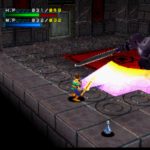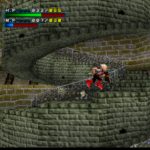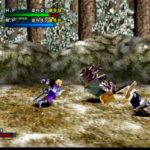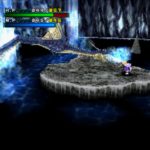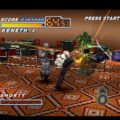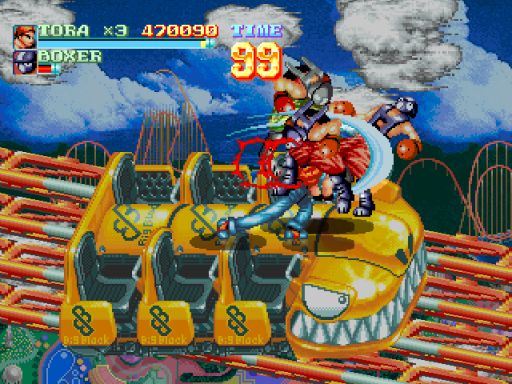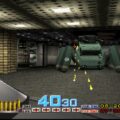Developer: Namco Publisher: Namco Released: 10/16/00 Genre: Action RPG
When the PlayStation RPG explosion hit it hit big. Publishers big and small tried to tap in to this newfound market, with some finding success and others floundering. But the most important fact was that role-playing games were a viable market which made it a prime time for publisher’s to revisit their back catalog. Namco chose to revive their arcade hit Dragon Buster with Dragon Valor in 2000. Sadly while the game is full of interesting ideas they never come together to make a compelling title that is more than the sum of its parts.
Dragon Valor begins when a youth named Clovis witnesses his village and everyone he knows burn at the hands of a dragon. After witnessing a dragon valor fall in battle with the dragon he takes up his sword to complete his quest and gain revenge. While the story starts out simply Dragon Valor becomes a generational tale with your choices affecting your future offspring. That in itself is interesting but the way it is handled is not which could be said about the entire game sadly.
Technically Dragon Valor is an RPG. But in gameplay it has more in common with beat em ups like Final Fight or Golden Axe. The viewpoint is the same, allowing you to run into and out of the screen at will. Unlike most titles in the brawler genre you have the characteristics of a platforming character along with a big arsenal of attacks. You can dash, block, double jump and use magic. You have a wide range of attacks at your disposal from basic sword strikes to charged attacks. In short order you also gain a number of spells that evolve throughout the game. In this respect the game has a solid foundation but does not accomplish a whole lot with it.
The RPG elements are slight. You do not gain experience points from killing enemies. The game’s currency (VAL) is also in small supply from enemies. You raise your stats like health, magic points, attack and defense by finding items. This means boosts are predetermined in every chapter. Occasionally you can buy these in a shop but the costs are usually so high you will miss out. Experience points are not necessary to enjoy a game but in this case the game does feel a bit hollow with its at times random stat upgrades.
Dragon Valor is split into chapters. Each chapter has a number of stages you select on the world map. The map gives you the illusion of choice but 90% of the time you have one option. Each stage is compact, usually comprised of seven or eight rooms. The puzzles are incredibly easy and mostly devolve into finding switches or box pushing. And even that is simple; you can only move boxes in one direction leaving no room for error. There is a significant amount of platforming that ordinarily would be a welcome break from the action. In practice it is frustrating. The viewpoint makes judging distance and position maddening. You only waste time in most cases when you fall but it does start to make you wonder why it is even present if they could not implement it properly.
Although you begin the game as Clovis he does not finish it. Depending on your actions your hero will marry one of two women and produce an heir who takes over in the following chapter. The generational system was the best aspect of Phantasy Star III and could have added another dimension to Dragon Valor. But it is half baked. Each new hero is more or less identical to the last and some even go feature the same story areas. Say what you will about Phantasy Star III but your decision on who to marry directly influenced your children’s abilities and story path. Treading the same ground with a different character is simply not appealing. This is the game’s biggest loss and one that could have helped make it unique.
Between the brevity of its stages and chapters Dragon Valor is a short game. Even though there are five chapters across two discs the game is only six or seven hours long. Mostly this is to facilitate multiple replays to experience all of the story branches. But most of the content across the three possible story branches is similar and ultimately outside of its admittedly awesome boss battles the game is not compelling enough to warrant more than a single run. It is sad too, as I’ve loved the generation system since it was introduced in Phantasy Star and have wanted to see it expanded upon in more games. But not like this.
In Closing
Dragon Valor had potential but squanders it. Most of its features are lacking, leaving a boring, repetitive mess of a game that is not worth revisiting. Stick with the Tales of series if you want your side scrolling Rpg kicks.


